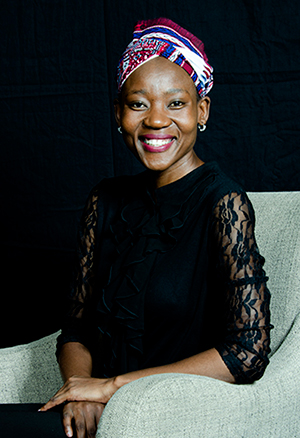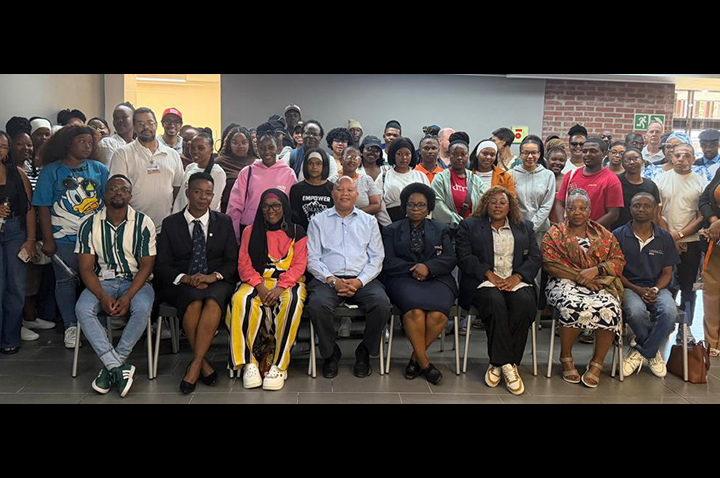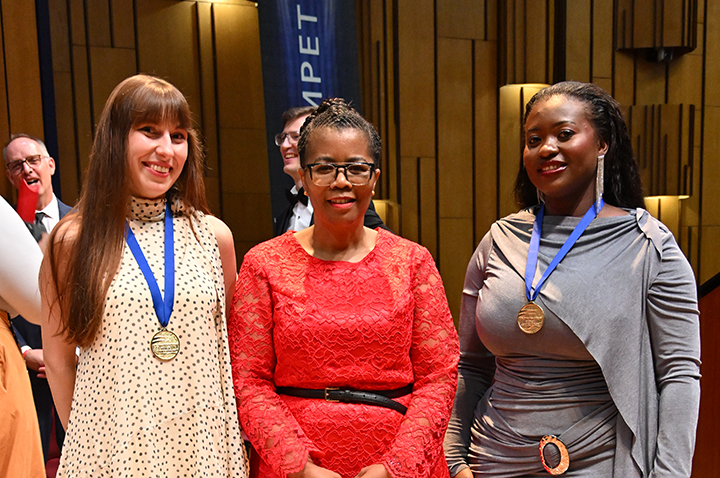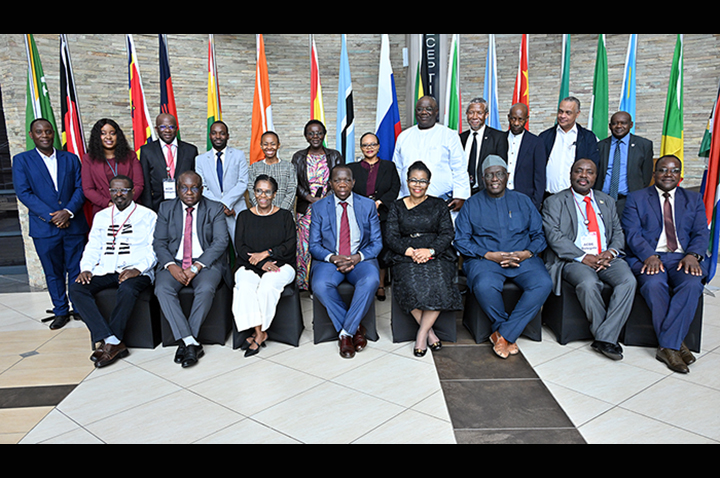
The African college of excellence in the social and human sciences

Prof Puleng Segalo
Never ceasing to impress, Unisa’s Associate Professor of Psychology, Puleng Segalo, was recently appointed as incumbent of the Chief Albert Luthuli Research Chair. "I feel very honoured and truly humbled to have been appointed in this position and realise the responsibility that such a great name carries," says Segalo.
Unapologetically having been a proponent of the decolonisation agenda, Segalo remarks: "Being associated with Chief Luthuli’s work is an extension of my beliefs in pursuing scholarship that aims to foster human dignity, social justice and overall acknowledgement of everyone’s humanity." She adds: "Also, Unisa’s association with his name is testament to the seriousness with which the university views transformation, social cohesion and justice for all."
As part of its recognition of Luthuli’s role in fighting for liberation and peace globally, Unisa made a formal commitment to honour his memory and legacy through an annual Chief Albert Luthuli Memorial Lecture, as well a progressive partnership with the Luthuli Museum. Segalo states: "Unisa wishes to serve every country on the African continent while transcending language and cultural barriers. As an institution that takes seriously the project of decolonisation and Africanisation, Unisa’s vision connects with Chief Luthuli’s vision of forging global solidarities, and striving for social justice and equality for all."
Segalo says that her role entails broadly asserting the will, conviction and courage to fundamentally transform the current political, social and economic order as it manifests itself within South Africa and around world. "Also," she explains, "my role is to be a pathway and a bridge that allow for the re-imagining of solidarities across borders, putting indigenous knowledge systems and gender justice at the centre, and using engaged scholarship that takes seriously knowledges embedded in communities. Furthermore, I have to ensure that the research chairship offers space for reflection and healing through work aimed at achieving social justice and cohesion."
Segalo states: "I am interested in Chief Luthuli as a person, and what he means for liberation heritage. We have a very masculine articulation of histories and heritages, and I believe that these require a rethinking." She adds: "Chief Luthuli was a proponent of non-violence. He embraced relationality, gender justice, interaction and listening."
Segalo’s term of office is three years and she has a clear vision in mind. She says: "My vision borrows from the Akan people of Ghana’s sacred ancestral notion of Sankofa, which calls on us to remember where we come from so that we can make meaning of where we are and where we hope to go in future." She adds: "Understanding our past will assist us to know and appreciate how and why things came to be the way they are. Excavation of our past will assist us to make meaning of our current struggles and possibilities." For her vision, Segalo hopes to achieve the following:
"We live in a complex and fractured society," she continues, "where pessimism is rife because of the injustices encountered by people daily." According to Segalo, people are confronted with constant struggles of making meaning of living in a world that constantly erases them. She concludes: "Building on Chief Luthuli’s spirit and philosophy, we have the possibility to transform Unisa into a truly Africanised and decolonised university."
* By Nancy Legodi, Acting Journalist, Department of Institutional Advancement
Publish date: 2021-05-31 00:00:00.0
 Unisa celebrates a project of hope, dignity and student success
Unisa celebrates a project of hope, dignity and student success
 Women vocalists take top honours at Unisa's globally renowned showcase
Women vocalists take top honours at Unisa's globally renowned showcase
 African wealth is dependent on investment in education and development
African wealth is dependent on investment in education and development
 Unisa celebrates matric result success at Correctional Services ceremony
Unisa celebrates matric result success at Correctional Services ceremony
 Unisa ICT Director recognised among acclaimed IT leaders
Unisa ICT Director recognised among acclaimed IT leaders